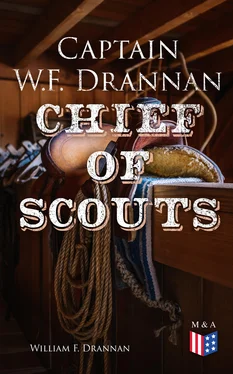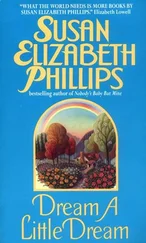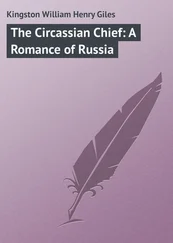William F. Drannan - Captain W.F. Drannan – Chief of Scouts
Здесь есть возможность читать онлайн «William F. Drannan - Captain W.F. Drannan – Chief of Scouts» — ознакомительный отрывок электронной книги совершенно бесплатно, а после прочтения отрывка купить полную версию. В некоторых случаях можно слушать аудио, скачать через торрент в формате fb2 и присутствует краткое содержание. Жанр: unrecognised, на английском языке. Описание произведения, (предисловие) а так же отзывы посетителей доступны на портале библиотеки ЛибКат.
- Название:Captain W.F. Drannan – Chief of Scouts
- Автор:
- Жанр:
- Год:неизвестен
- ISBN:нет данных
- Рейтинг книги:4 / 5. Голосов: 1
-
Избранное:Добавить в избранное
- Отзывы:
-
Ваша оценка:
- 80
- 1
- 2
- 3
- 4
- 5
Captain W.F. Drannan – Chief of Scouts: краткое содержание, описание и аннотация
Предлагаем к чтению аннотацию, описание, краткое содержание или предисловие (зависит от того, что написал сам автор книги «Captain W.F. Drannan – Chief of Scouts»). Если вы не нашли необходимую информацию о книге — напишите в комментариях, мы постараемся отыскать её.
Captain W.F. Drannan – Chief of Scouts — читать онлайн ознакомительный отрывок
Ниже представлен текст книги, разбитый по страницам. Система сохранения места последней прочитанной страницы, позволяет с удобством читать онлайн бесплатно книгу «Captain W.F. Drannan – Chief of Scouts», без необходимости каждый раз заново искать на чём Вы остановились. Поставьте закладку, и сможете в любой момент перейти на страницу, на которой закончили чтение.
Интервал:
Закладка:
Just then one of the men said, "I have known that man ten years and I know that all the advice all these people could give him would be wasted breath and the less said to him the better it will be."
I then went back to Simson who had charge of the wagons and said to him, "What shall we do with that old man? He is hitching up to leave us which will be sure death to him and his family. If he goes had we not better take his team away from him and save his life and his family's?"
Simson said, he would consult with the other men and see what they thought about it. After he had talked with the other men a short time, twenty or thirty of them went out where the old man was hitching up his team. What they said to him I do not know. When I got to him he was about ready to pull out; he said, "I'm going now and you men can come when you please and I don't give a D'. whether you come at all of not."
This was the last we ever saw of the old man or his son.
Three days later Jim Bridger arrived with his train, and then we all pulled out together by the way of Honey lake. The first night after leaving camp Jim Bridger, Simson and myself had a talk about the old man who had left us. Jim said. "I don't suppose we shall ever hear of him again," and turning to me he said, "Will, it will take us two days to go to Honey Lake; now tomorrow morning suppose you pick out of your scout force eight good men, take two days' rations and your blankets with you and rush on ahead to the Lake and see if you can find them. It may be possible that some of them are alive, but I don't think you will find one of them. Now, Will, be careful and don't take any desperate chances; if you find they have been taken prisoners keep track of them until we get there."
The next morning I and my men were off bright and early. We reached the lake about three o'clock in the afternoon, where we struck the lake there was scattering timber for quite a ways up and down and here we found the old man's wagon. The wagon cover, his tent, and his team, were gone; his cooking utensils were setting around the fire which was still burning. Almost every thing was gone from the wagon, but there was no sign of a fight. Neither could we see any white men's tracks; but moccasin tracks were plenty. We sat down and ate our luncheon: as soon as we finished eating we started to trail the Indians to find out what had become of the whites. We had gone but a short distance when I discovered the tracks of the two women; then we knew that they had been captured by the Indians. I said, "I want you men to take this side of the ridge and watch for Indians all the time, and you must watch me also; when you see me throw up my hat come at once and be sure to not shout, but signal to each other by whistling or holding up your hands and be sure to have your signals understood among yourselves. And another thing I want to say to you, if you see any Indian, signal to me, at once. Now I am going to take the trail of these white women, and if I need your assistance I will signal, and you must all get to me as quick as possible."
All being understood I started on the trail of the white women. I hadn't followed the trail over a half a mile, when I saw one of the men running towards me at full speed; when he reached me he said, "We have found a dead man, and he is stuck full of arrows."
I mounted my horse and accompanied him to where the body lay. I recognized it at once; it was the son of the old man who had left us three days before. His clothes were gone except his shirt and pants, and his body was almost filled with arrows. I said, "This is one of the party, and the other is a prisoner, or we shall find his body not far from here. Let us scatter out and search this grove of timber thoroughly; perhaps we may find the other body; and be careful to watch out for the Indians, for they are liable to run upon us any time."
We had not gone more than two hundred yards before we found the old man's body; it was laying behind a log with every indication of a hand-to-hand fight. One arrow was stuck in his body near the heart, and there were several tomahawk's wounds on the head and shoulders, which showed that he died game.
It was getting late in the afternoon so I proposed to the men that we take the bodies back to where we had found their camp, as we had no way of burying the bodies in a decent manner, we had to wait until the train came up to us. We laid the bodies side by side under a tree and then we went into camp for the night as there was good grass for the horses. We staked them out close to camp. We had seen no Indians all day, so we did not think it necessary to put out guards around the camp that night, and we all laid down and went to sleep.
The next morning we were up and had an early breakfast; that done, I said, "Now, men I want two of you to go back and meet Bridger and tell him what we have found and pilot him here to this camp, and he will attend to the burying of these bodies; I would rather you should choose among your selves who shall go back."
One man by the name of Boyd and another whose name was Taluck said they would go. These men were both from Missouri; I then told them to tell Bridger that I was a going to start on the trail of the white women at once, and for him to camp here and that he would hear from me tonight, whether I found them or not.
The rest of the men and I started on the trail; three went on one side and three on the other, and I took the trail; I cautioned the men to keep a sharp look out for the Indians all the time, and if they saw any Indians to signal to me at once. I had followed the trail some five or six miles when it led me to a little stream of water in a small grove of timber. Here I found where the Indians had camped; the fire was still burning which convinced me that the Indians had camped there the night before. I also saw where the two women had been tied to a tree. I followed them a short distance and saw that the band we were following had met a larger band, and they had all gone off together in a northerly direction. We were now near the north end of Honey lake, and I had about given up hopes of ever seeing the women again, but I did not tell my thoughts to my companions. The trail was so plain that I now mounted my horse; we followed at a pretty rapid gate two or three miles, when we saw that a few tracks had turned directly towards the lake. I dismounted and examined them and found the two shoe tracks went with the small party. I was now convinced that this was a party of squaws going to the lake to fish; and I felt more encouraged to keep up the pursuit. We were within a mile of the lake at this time. We rode as fast as we could and keep the trail in sight. We soon came in sight of the lake; looking to the right I saw a small band of squaws building a fire. I called the men to me and told them that I believed the women we were looking for were with those squaws, and if they were, I thought we could rescue them.
"I think our best plan will be to ride slowly until they see us and then make a dash as fast as our horses can carry us; if the white women are with them, we will ride right up to them, if they are tied I will jump down and cut them loose," and pointing at two of the men I said, "You two men will take them up behind you and take the lead back, and the rest of us will protect you."
We did not ride much farther before the squaws discovered us at which they began to shout, "Hyha," which meant "They're coming they're coming."
In a moment we were in their midst, and sure enough the women were there and tied fast to a small tree, a short distance from where the squaws were building the fire.
What happened in the next few minutes I could never describe. The women knew me at once and with cries and laughter, touching, beyond description greeted me.
In an instant I was off my horse and cutting them loose from the tree, at the same time the men were circling around us with guns cocked ready to shoot the first squaw that interfered with us.
Читать дальшеИнтервал:
Закладка:
Похожие книги на «Captain W.F. Drannan – Chief of Scouts»
Представляем Вашему вниманию похожие книги на «Captain W.F. Drannan – Chief of Scouts» списком для выбора. Мы отобрали схожую по названию и смыслу литературу в надежде предоставить читателям больше вариантов отыскать новые, интересные, ещё непрочитанные произведения.
Обсуждение, отзывы о книге «Captain W.F. Drannan – Chief of Scouts» и просто собственные мнения читателей. Оставьте ваши комментарии, напишите, что Вы думаете о произведении, его смысле или главных героях. Укажите что конкретно понравилось, а что нет, и почему Вы так считаете.












